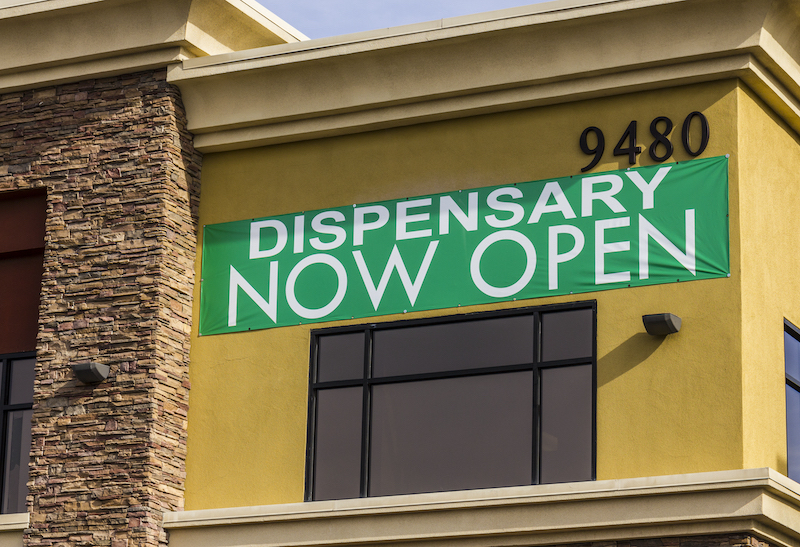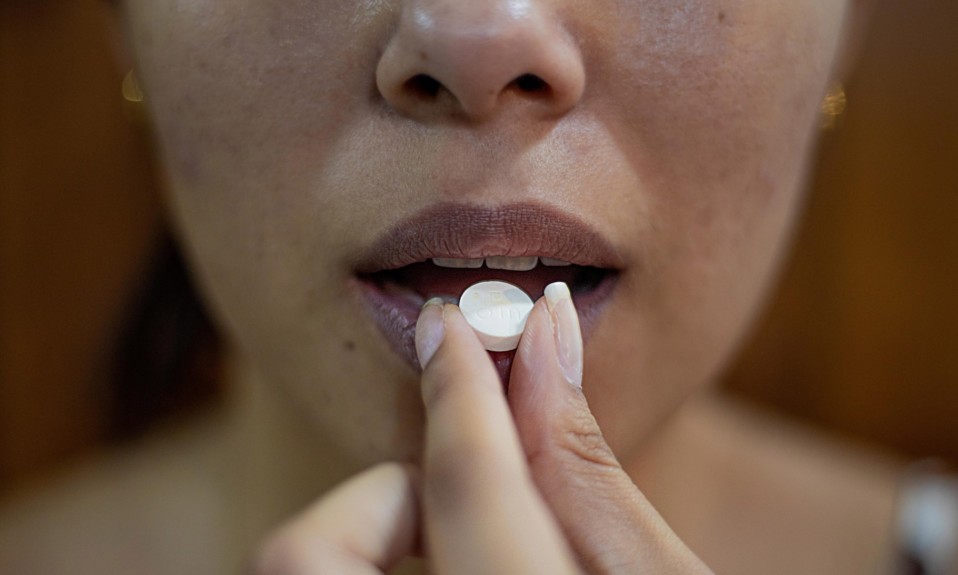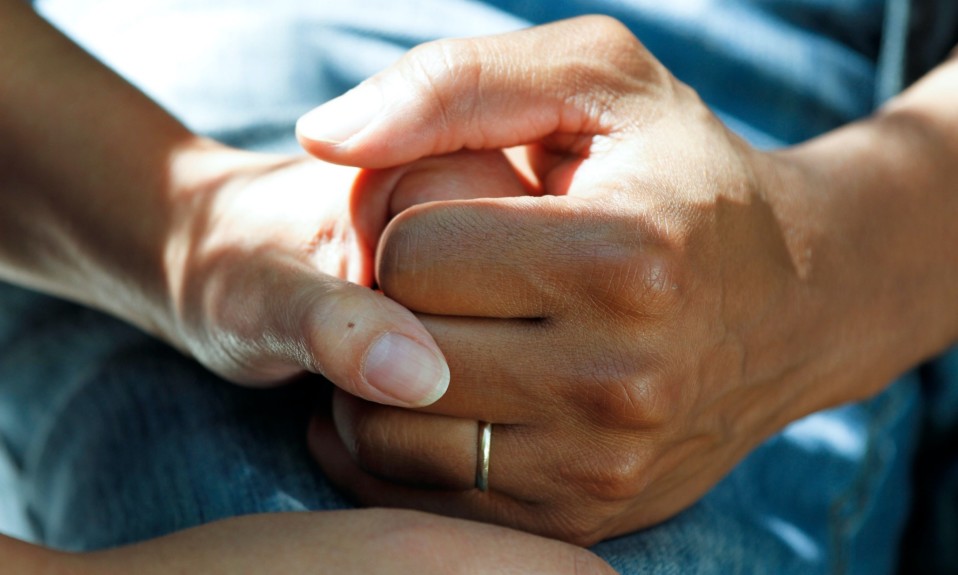More schools are creating sober-supportive environments that provide comfort, empathy and a platform for success
By Jennifer Taylor
For Augsburg University graduate Simon Eskenazi, a successful college experience wasn’t solely rooted in academics. He also was in search of a sober-supportive environment, something often lacking in higher-education institutions. In fact, many campuses have been cast as “abstinence hostile” as a result of cultures that glorify drinking.
Eskenazi, a Seattle native and in recovery from substance use, wanted the same thing as many other high school graduates: the opportunity to pursue his hopes and dreams in his chosen career path. He attended another college out of high school before enrolling in Minneapolis-based Augsburg. For him, Augsburg’s strong, supportive social network—without the peer pressure to use—was pivotal.
Today, there are more options than ever before for students to pursue their academic goals, even while they remain firmly ensconced in their personal journeys of recovery. It’s possible to do both, believe it or not. And that wasn’t always true.”—William Moyers, Hazelden Betty Ford Foundation
Eskenazi’s search began in 2018, and with the help of his parents and a college consultant, he compiled a list of schools with sober-supporting environments. He considered some schools’ offerings to be “subpar” for students in recovery, but Augsburg quickly rose to the top. The school offers one of the most established student recovery programs in the country, StepUP. For Eskenazi, that level of support enabled him to extend his sober living.
“The more time I [spent] sober living, the safer I felt and the more confident I felt in my recovery,” he says. “It’s given me a chance to do college.”
The Temptations of College
College represents a new frontier for students—the first time away from home, new academic and living environments, and a new set of peers who straddle the legal age for consumption of alcohol and, in some states now, marijuana. The freedom and independence college affords can also bring a minefield of temptations in an environment where substance use is typically accepted.

Many associate college drinking with a rite of passage and a social lubricant, says William Moyers, vice president of Public Affairs and Community Relations for the Hazelden Betty Ford Foundation. “With it comes lots of fun [and] lots of consequences,” he says, “Whether it’s physical injuries, mental anguish, sexual assault [or] death, alcohol is oftentimes not just a social lubricant for young people, but the consequence of a choice. Young people who are learning how to drink, oftentimes make mistakes along the way.”
Statistics show the use of some substances by young adults and future college students is on the rise, whereas that of others is decreasing. According to a 2018 National Institute on Drug Abuse (NIDA) survey, marijuana vaping among college students rose from 5% in 2017 to 10.9% in 2018. Nicotine vaping among college students soared from 6% in 2017 to 15% the following year, the greatest one-year increase seen for any substance in the history of the survey. Meanwhile, opioid misuse went down slightly, and college student binge drinking dropped below 30% for the first time. (For a typical adult male, binge drinking corresponds to consuming five or more drinks over the course of about two hours.) Eleven percent of college students reported the misuse of Adderall, an amphetamine.
All of this, coupled with the pressures to make new friends and fit in, can be a recipe for disaster for students in recovery who still want the college experience. Yet just as Eskenazi discovered, it doesn’t have to be that way.
“Today, there are more options than ever before for students to pursue their academic goals, even while they remain firmly ensconced in their personal journeys of recovery,” says Moyers. “It’s possible to do both, believe it or not. And that wasn’t always true. Today, it is true. It is possible to recover and be a college student in America.”
Collegiate Recovery Programs
Collegiate Recovery Programs (CRPs), like the one at Augsburg, emerged in the 1970s and 1980s to help students pursue their education while sustaining their recovery. The concept has caught on across the country, mostly thanks to advocacy organizations such as the (ARHE), which represents Collegiate Recovery Programs. ARHE specifically provides education, resources and community connection blueprints for college campuses seeking to support students in recovery.
A university or college has to decide it’s something they really believe in. If it’s not part of the mission of the school, it’s not going to be very successful.”—Patrice Salmeri, Association of Recovery in Higher Education
The movement has come a long way, says Patrice Salmeri, president of ARHE. About 20 years ago, three schools had programs. Today, ARHE is closing in on 150 member schools with programs. (See the full list here.) While it’s important to have some infrastructure in place for a CRP, Salmeri says it’s more vital for colleges to align with the overall mission. “A university or college has to decide it’s something they really believe in,” she says. “If it’s not part of the mission of the school, it’s not going to be very successful.”
The offerings vary depending on the school, but even for colleges just starting a CRP, Salmeri says minimal infrastructure—a space for students to meet, a staff member and a welcoming environment with activities, food and beverages—is huge.
Augsburg and Texas Tech University in Lubbock, Texas, have two of the best-known programs. Here’s a look:
Augsburg University: StepUP

Augsburg’s StepUP, founded in 1997, is a recovery-based support program designed to provide structure for students. It addresses both addiction and mental health concerns. Services include a sober-living college experience in a substance-free residence hall; weekly meetings with counselors to help monitor a student’s recovery; “big circle” meetings with the entire sober college community; access to on-campus support services; and access to alumni who have participated in the program.
Renee Most, director of StepUP and a participant in the program when she was a student at Augsburg, notes that the organization fosters a social network by offering regular activities and events. Among StepUp’s current focuses is how to transition students into the workforce upon graduation.
“We want people to come to the program, be involved and have a community. Then what happens next?” she says. “I always look at it like that continuum of care. You got into recovery, and you’re in this kind of bubble, if you will, and everybody’s sober. How do you use the skills that you’ve learned?”
Texas Tech University: The Center for Collegiate Recovery Communities
The Center for Collegiate Recovery Communities at Texas Tech University, established in 1986, caters to students in recovery from alcohol, drugs, behavioral addictions and eating disorders. One of the first programs of its kind in the nation, its mission is to support continued recovery, facilitate connectedness to community and promote academic success. The Center for Collegiate Recovery Communities operates out of a 17,000-square-foot space that houses a recreation center, mediation room, administrative services and research floor for Ph.D. students and professors in the addictive disorders studies area.
When Texas Tech first created the space, it amounted to a 200-square-foot lounge that was called the Serenity Center. But that was enough to set the tone. “We knew from the minute that space was christened that it held the energy of the university for anybody in recovery,” says George Comiskey, Ph.D., LCDC, associate director for external relations for the Center for Collegiate Recovery Communities.
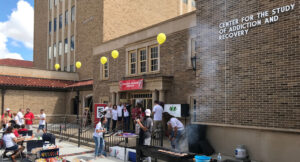
Other wellness supports include nutrition seminars with an onsite dietician, academic advising and counseling, study-abroad opportunities, sober tailgating for football games, and suite-style sober dorm options. The program draws students from across the country, and its model is being replicated at other universities, says Comiskey.
“If they don’t have their recovery, they don’t have anything,” Comiskey says, adding that the sense of community is essential to making students feel safe and keeping them engaged with each other.
Support Systems Make a Difference
Collegiate Recovery Programs create opportunities for students to socialize and develop a supportive social network that reduces the risk of recurrences of substance use, studies say. According to a 2017 Hazelden Betty Ford Foundation report, 56% of students surveyed said a peer support network was the main reason for joining a CRP. One-third said a safe space for recovery on campus was key for them.
“CRPs offer students entering university a ready-made, same-age peer support network without which coping with a new, often ‘abstinence-hostile’ environment and with the pressures of college life would be highly stressful,” Alexandre Laudet, director emeritus at the Center for the Study of Addictions and Recovery, National Development and Research Institutes, Inc., said in the Hazelden report.
The message, according to Most, is that students in recovery don’t have to fear going to college. “They can have the same experiences as other people [their] age,” she says. “You can still have that and go to college and have fun.”
I have a whole community that I’m accountable to. I’m not going to bring drugs into the building. I’m not going to be intoxicated. I don’t want to put anyone else in a position where they might be triggered, or be influenced to relapse.”—Augsburg University graduate Simon Eskenazi
And you can be successful in the classroom. More than 50% of Augsburg’s StepUP students make the Dean’s List, and many participate in research with professors.
In other words, says Most, these students have grit. “They don’t give up. They’re wise beyond their years because they have experienced so many of life’s things. They know that life can be cruel. They know what to keep doing in order to survive and get better. They show up at college in a very different way, which is why I think a lot of them are so successful.”
For Students and Parents: Where to Begin
College-bound students in recovery and their parents should make recovery and continued care part of the college search process. Just like inquiring about tuition, academic areas of interest, geographic location, housing and extracurricular activities, recovery resources should be among the boxes checked when considering the pros and cons of a college, says Moyers.
“The students are generally the ones who know that nothing is more important than their own recoveries,” he says. “You’ve got to consider your resources to build and sustain your recovery.”
Moreover, students and parents should reach out to schools directly. Questions to ask include:
- Does the college have recovery programs?
- Are on-campus recovery meetings offered?
- Does the college have a sober-support system?
- Does the college provide a designated gathering space for students in recovery?
- Are there frequent sober-supportive activities?
- Is a sober-support social network in place?
- Does the school have sober-living housing?
- Is specialized counseling available for students in recovery?
Understand what’s involved in joining a recovery program. If there’s an application process, make yourself aware of the program’s criteria and deadlines, which may be independent of the school’s general admissions application. Many schools, like Augsburg and Texas Tech, require students to have some length of time in recovery before applying.
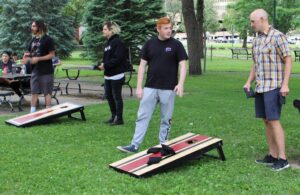
If the student is open to the idea, says Most, everything should fall in place from there. “Come try it out. See if it helps,” she says. “Then you get some college and then maybe you go somewhere else. You don’t have to commit to four years, you can commit to one year.”
For Eskenazi, who graduated from Augsburg with a degree in psychology this spring, the experience allowed him to focus on school without being stressed about returning to substance use.
“I have a whole community that I’m accountable to. I’m not going to bring drugs into the building. I’m not going to be intoxicated,” he says. “I don’t want to put anyone else in a position where they might be triggered, or be influenced to relapse.”
It gave Eskenazi a safe space to fit in, which made all the difference.
“Everyone’s totally understanding of the whole recovery thing,” he says. “If you really want to change your life for the better and be in a place where there’s a sober living environment that will help keep you sober through college so you can get a degree, I’d say just do it.”
Top photo: Zachary Nelson; second photo from top: Sincerely Media



